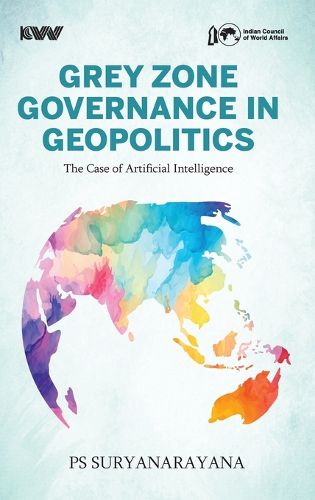Readings Newsletter
Become a Readings Member to make your shopping experience even easier.
Sign in or sign up for free!
You’re not far away from qualifying for FREE standard shipping within Australia
You’ve qualified for FREE standard shipping within Australia
The cart is loading…






This title is printed to order. This book may have been self-published. If so, we cannot guarantee the quality of the content. In the main most books will have gone through the editing process however some may not. We therefore suggest that you be aware of this before ordering this book. If in doubt check either the author or publisher’s details as we are unable to accept any returns unless they are faulty. Please contact us if you have any questions.
Artificial Intelligence (AI), increasingly the hyper-tech flavour of the 21st century, holds the promise of humanity's new destiny if harnessed responsibly and governed globally. 'Doomsday' concern, however, is that AI could spawn and power weapons of mass destruction (WMD), worse than the most devastating nuclear and other WMD. Robust enforceable standards for global governance of AI are lacking, characterising this technology as a 'grey zone' in the realm of geopolitics.
The design, development, deployment, and use of AI have become the prerogatives of states and many non-state actors. Major countries are competitively perfecting this know-how and conceptualising norms for its use as a national or even borderless asset. At different geopolitical levels - the G20, Global Partnership on Artificial Intelligence, the Quad etc. - efforts are ongoing to regulate AI.
The United Nations seeks to maximise AI's benefits and mitigate its latent risks across the world. The UN General Assembly has unanimously adopted two civil-AI resolutions, besides endorsing an intensely debated AI-arms resolution. A fair reform of the UN Security Council is necessary to regulate AI's military applications.
The book presents the view that the UN could take the initiative to reform the UNSC on the basis of an advisory roadmap from a non-partisan AI model/system. Otherwise, the potential emergence of an 'AI superpower' group will be globally divisive.
This monograph is published under the auspices of the Indian Council of World Affairs and is timed for the UN Summit of the Future in September 2024 and beyond.
$9.00 standard shipping within Australia
FREE standard shipping within Australia for orders over $100.00
Express & International shipping calculated at checkout
This title is printed to order. This book may have been self-published. If so, we cannot guarantee the quality of the content. In the main most books will have gone through the editing process however some may not. We therefore suggest that you be aware of this before ordering this book. If in doubt check either the author or publisher’s details as we are unable to accept any returns unless they are faulty. Please contact us if you have any questions.
Artificial Intelligence (AI), increasingly the hyper-tech flavour of the 21st century, holds the promise of humanity's new destiny if harnessed responsibly and governed globally. 'Doomsday' concern, however, is that AI could spawn and power weapons of mass destruction (WMD), worse than the most devastating nuclear and other WMD. Robust enforceable standards for global governance of AI are lacking, characterising this technology as a 'grey zone' in the realm of geopolitics.
The design, development, deployment, and use of AI have become the prerogatives of states and many non-state actors. Major countries are competitively perfecting this know-how and conceptualising norms for its use as a national or even borderless asset. At different geopolitical levels - the G20, Global Partnership on Artificial Intelligence, the Quad etc. - efforts are ongoing to regulate AI.
The United Nations seeks to maximise AI's benefits and mitigate its latent risks across the world. The UN General Assembly has unanimously adopted two civil-AI resolutions, besides endorsing an intensely debated AI-arms resolution. A fair reform of the UN Security Council is necessary to regulate AI's military applications.
The book presents the view that the UN could take the initiative to reform the UNSC on the basis of an advisory roadmap from a non-partisan AI model/system. Otherwise, the potential emergence of an 'AI superpower' group will be globally divisive.
This monograph is published under the auspices of the Indian Council of World Affairs and is timed for the UN Summit of the Future in September 2024 and beyond.